The XVIIIth Symposium of the International Association of Women Philosophers: Defining the Future, Rethinking the Past
Paderborn University, Germany, July 19-22, 2020.
The International Association of Women Philosophers (IAPh) is a decisive organisation in promoting women’s research in philosophy and its history. Founded in Germany in 1976, it is now a global network for all women in philosophy. Given its strong tradition, IAPh covers all philosophical disciplines, feminist philosophy as well as the history of women philosophers.
After venues at Monash University, Melbourne (2016) and Tsinghua University, Beijing (2018), the 18th world congress of IAPh will be hosted by the Center for the “History of Women Philosophers and Scientists” (HWPS) at Paderborn University, Germany.
IAPh 2020 will be devoted to the most pressing issues of our future: In times of rapid technological progress, climate change, and economic turmoil, we invite women’s contributions on the philosophy of economics, philosophy of technology, and ecology/environmental ethics.
Moreover, given the initial aim of IAPh and the research focus of the Center for the History of Women Philosophers and Scientists, we also seek to discover and reassess the role of women philosophers. We therefore welcome submissions on historical female thinkers.
-
SECTIONS
In our main sections, possible topics might include, but are not limited to, the following:
-
Philosophy of Economics
- Micro/Macro Economics
- Feminist Economics
- Economic Justice
- Economic Methodology
-
Environmental Philosophy
- Food Ethics
- Animal Ethics
- Climate Ethics/Economics
- Ecofeminism
-
Philosophy of Technology
- Algorithms and Digitization
- Surveillance and Responsibility
- Robotics and Artificial Intelligence
- New Work/Future Directions
- Feminist Philosophy of Technology
-
History of Philosophy
- Feminist Historiographic Methodology
- History of Women Philosophers: Western & Non-Western Traditions
-
Keynote Speakers
A distinguished researcher and activist, Carol J. Adams will talk about the connections between meat consumption and sexism. Her ground-breaking book “The sexual politics of meat” is now a modern classic and bridges animal ethics and the women’s lib movement. Adams’ talk at IAPh 2020 also marks her first professional visit to Germany.
Prof. Giardini will explore how philosophy can offer new intellectual paths in thinking about the economy: How can be combine ecology and economy, and how can the unpaid work of women adequately been included in economic analyses of, for instance, GDP?
In times rising economic inequality and threats to democracy, Lisa Herzog will give a talk about the links between “Economic Knowledge, Democratic Knowledge”.
At IAPh 2020, Kateryna Karpenko (Kharvik National University, Ukraine) will talk about the links between gender injustice and ecological issues, because it is no news that we will face tremendous environmental problems in the future. Do feminist perspectives offer possible solutions? After all, it’s women who suffer the most from climate change, overpopulation, and deforestation.
Professor Kim is a renowned philosopher of science and president of the prestigious Ewha Woman’s university in Seoul). Her keynote for our section on the philosophy of technology discusses how AI research might profit from integrating women’s research on this area. Prof Kim’s expertise on this is far from being purely abstract: She has recently established a special research field on AI at Ewha Woman’s University where she seeks to incorporate not only women’s research on AI, but also to establish a strong connection between philosophical research with the latest findings from information technology.
At IAPh, we want to go into the subtler issues behind AI and machine learning, and invite contributions on any aspect of philosophy of technology. We are therefore very pleased to welcome Yuko Murakami from Rikkyo University, Japan, as our keynote speaker on the philosophical questions of AI. Prof Murakami is an international expert on AI who works at the intersection between philosophy and information science. Most recently, she has worked on what kind of ethics should guide the information education of robots.
Julie A. Nelson will complete our trio of women philosophers on economics. Nelson’s work focuses on the methodology of economics and feminist economic theory and draws attention to the underlying social and cultural mechanisms (aka: values) that shape and influence markets. Nelson argues that we need to be aware of how cultural norms and expectations influence our thinking about the supposedly “amoral” market sphere in order to address issues like climate change.
Caterina Pello, a trained classicist and philosopher, will give a talk on women in the Pythagorean tradition. Her keynote will close an important gap in the history of philosophy.
Gisele Dalva Secco will give a talk on the philosophy of mathematics, precisely: the Four-Color Theorem proof, which happens to be the first original mathematical result depending on computer assistance. Secco will argue that this celebrated mathematical proof is still relevant for contemporary philosophy of mathematical practice for reasons not envisioned until now: it marks the rise of a new mathematical culture, in which the work of women can play a significant part.

Mpho Tshivhase, Pretoria ZA
Mpho Tshivhase received her degree in Psychology and Philosophy at the University of Johannesburg. Her overarching research concern aims to delineate what uniqueness amongst persons is and how we relate to it. She is a member of the Philosophical Society of South Africa, as well as Golden Key Society in South Africa. At the IAPh 2020 she will give a talk on women philosophers and AI.

Xiao Wei, Beijing CN
-
WORKSHOPS
We also encourage submissions for the following workshops:
-
Die IAPh - Ihre Anfänge (in German)
Convenor: Herta Nagl-Docekal
The aim of this workshop is to review the history of IAPh: what did it achieve, and how can we tackle the remaining obstacles women philosophers still face?
-
Women Philosophers' Presentation in the Digital World
Convenor: Ruth Hagengruber
At IAPh 2020, we want to increase the digital presence of women philosophers by encouraging the development of projects which pursue the same aim. This workshop will take place over the whole duration of IAPh 2020 as a special event of our project “Defining the future, rethinking the past”.
-
German Idealism and Feminist Philosophy
Convenors: Tuija Pulkkinen, Susanne Lettow
In this workshop we want to explore the various interrelations between German Idealism and feminist philosophy by dwelling on key concepts like equality, autonomy, the subject, nature, and consciousness, as well as, e.g. the dialectics of master and slave. In addition, gender and sexuality were central issues of German Idealists, and many of them reflected intensively on topics such as love, marriage, the family, and the political status of women. How and to what extent can their ideas be made fecund for today’s gender issues?
-
South-East European Women Philosophers
Convenors: Luka Boršić, Ivana Skuhala Karasman
In this workshop we will discuss women philosophers and feminists from the south-eastern part of Europe i.e. from Albania, Bosnia and Herzegovina, Bulgaria, Croatia, Greece, Kosovo, Montenegro, North Macedonia, Romania, Serbia and Slovenia. This European region boasts an extraordinary history as it was subject to various political forces, which left their mark on this region’s intellectual history and culture. This had tremendous effects not only on the general position of women in society, but also on the choice of philosophical activities of those women. We will explore the roots and backgrounds of their philosophical views, as well as some of their main philosophical positions.
-
Diana Tietjens Meyers on Autonomy
Convenor: Evangelia Aikaterini Glantzi.
In line with the conference theme of “Defining the Future, Rethinking the Past,” we are soliciting workshop papers that position Meyers’ thought in the evolution of feminist and/or mainstream philosophy of action or papers that consider whether and how Meyers’ work might contribute to issues of current and ongoing concern to feminist philosophers and activists. The workshop session will take place Monday, July 20, 2020, 10:00AM-noon. It will be structured as follows: presentation of three formal papers, followed by Meyers’ response and open discussion. Note that abstracts for this workshop are due April 15, 2020. Please email your abstract to eglantzi@gmail.com. We very much look forward to receiving your submissions.
-
Diotimas Begehren – Muße als Dialogkultur auf dem digitalisierten Campus? (in German)
Convenor: Marion Mangelsdorf (Albert-Ludwigs-Universität Freiburg)
In Platons Symposium wird die Muße, die das Gespräch ermöglicht und rahmt, als basal vorgestellt. Dabei entwickelt Sokrates in der Wiedergabe eines fiktiven Gesprächs mit der Seherin Diotima eine Vorstellung des Eros als Triebkraft, die hinter allem Verlangen nach dem Schönen, Guten und Wahren stünde. Damit begreift Sokrates Eros als Basis eines unstillbaren Verlangens nach Erkenntnis und wissenschaftlichen Forschens.
Der Rede Diotimas ebenso wie einer durch Muße ermöglichten Dialogkultur spürt der Workshop als (selbst-)kritische Inspirationsquelle für Fragen am digitalisierten Campus der zeitgenössischen Alma Mater nach: In Form von Webdokumentationen und künstlerisch mediengestalterischer Gesprächsformate möchte ich den Campus als Versammlungsort wiederbeleben (vgl. https://genderingmint.pageflow.io/ein-gastmahl).
-
Women Philosophers in the Arab World
Convenors: Zeineb Ben Saïd-Cherni, Ana Rodrigues (Paderborn University)
So far, the perception of Arabic-speaking philosophy in Europe has been limited to classical male authors such as al-Fārābī, Ibn Sīnā and Ibn Rušd. Nevertheless, recent research such as the work of Tamara Albertini challenges this predominant perception of philosophy in the Islamic world. There have been important contributions by women such as Rābiʿa al-ʿAdawiyya al-Qaysiyya of Basra or ‘A’Ishah Al-Ba’uniyyah of Damascus. This workshop aims at contributing to an increased visibility of female philosophers in the Arab World in history and today. We invite contributions on any epoque and any topic.
-
Women in Early Phenomenology
Convenors: Ronny Miron (Bar-Ilan University Israel), Julia Mühl (Universität Paderborn)
In this workshop we will discuss women philosophers who were part of the phenomenological movement of the 20th century. Our main focus will be on the phenomenologists Hedwig Conrad-Martius and Gerda Walther. While Hedwig Conrad-Martius was a key figure of the Göttinger phenomenological circle, Gerda Walther was a student of Alexander Pfänder and Edmund Husserl and a member of the Freiburger phenomenological society. Both women were important contributors to the development of phenomenology. We will delve into the historical backgrounds of these women phenomenologists and explore their philosophical contributions.
July 23rd, 10:30 a.m.
Selected papers will be published. If you would like your paper to be considered in advance of the conference for publication, please submit an essay of up to 10,000 words (including notes) to: iaph2020@lists.uni-paderborn.de (include a separate, single page containing: title, author contact details, affiliation, conference section to which you are submitting the paper to (e.g., section 2.e.,) abstract and short CV). You do not have to submit an additional abstract for presentation at the conference.
Organization: Prof. Dr. Ruth Hagengruber and team.
For more information please contact:
contact@historyofwomen
philosophers.org
The IAPh Board 2018-2020: Chris Sanchez, Madrid ES; Mary Ellen Waithe, Cleveland/Washington US; Xiao Wei, Beijing CH; Karen Green, Melbourne AUS; Heisook Kim, Seoul KR; Christina Schües, Lübeck GER; Cintia Martinez Velasco, Mexico City MX; Martina Reuter, Jyväskylä FN; Ruth Hagengruber, Paderborn GER.
Program Committee: Waltraud Ernst, Linz University; Elke Holst, Berlin; Herta Nagl, University of Vienna; Clara Mavellia, Berlin; Jutta Weber, Paderborn University
PHOTOGRAPHY AND FILMING DISCLAIMER
Please note that photographs and video footage will be taken throughout IAPh 2020. These will be used by Paderborn University for marketing and publicity purposes in online and print media. Please contact the event organizers if you have any concerns or if you wish to be exempted from this.
Vegan/vegetarian snacks and drinks will be provided during the conference.
You cannot copy content of this page









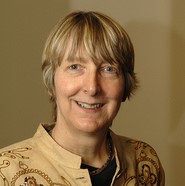

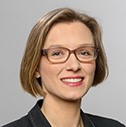
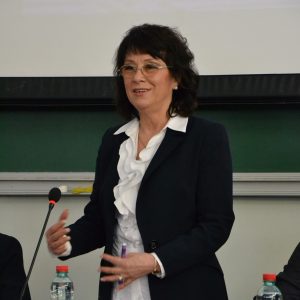


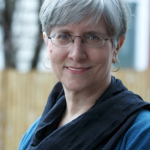
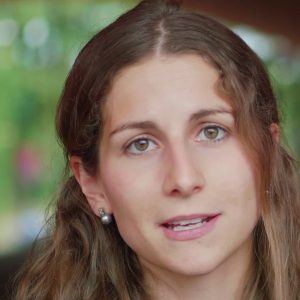

Xiao Wei’s studies focus on ethics, gender studies and bioethics (Public Health Ethics). Her book and teaching has won two professional prizes. She has also been selected as one of the “one-hundred promising scholars of the Beijing government for the 21st century”. Her keynote at the IAPh 2020 will be about “Women Philosophers on Health and Environmental Issues”.